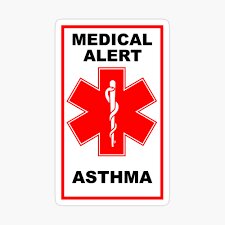AsthmaAlert: AI-Powered Air Quality Monitoring for Asthma Patients
AsthmaAlert is an innovative application that harnesses the power of artificial intelligence to help asthma patients manage their condition more effectively. By continuously monitoring air quality and alerting users to potential asthma triggers, AsthmaAlert provides a proactive approach to asthma management[1].
The app utilizes advanced AI algorithms to analyze real-time data from various sources, including local weather stations, pollution sensors, and pollen count monitors. This comprehensive approach allows AsthmaAlert to create a detailed picture of the air quality in a user’s immediate environment[2].
Key Features:
- Real-time air quality monitoring: Constantly tracks air quality indices, pollution levels, and allergen concentrations.
- Personalized alerts: Sends notifications to users when air quality conditions may trigger their asthma symptoms.
- Predictive analysis: Uses machine learning to forecast potential asthma triggers based on historical data and weather patterns.
- Customizable thresholds: Allows users to set their own sensitivity levels for different types of triggers.
AsthmaAlert’s AI-driven system learns from user feedback and medical data to improve its accuracy over time. This personalized approach helps asthma patients take preventive measures, such as using their inhalers preemptively or avoiding outdoor activities during high-risk periods[3].
By providing timely and accurate information, AsthmaAlert empowers asthma patients to make informed decisions about their daily activities and medication use. This proactive management can potentially reduce the frequency and severity of asthma attacks, improving overall quality of life for those living with this chronic condition[4].
As air quality continues to be a growing concern in many urban areas, tools like AsthmaAlert demonstrate the potential of AI technology to address health challenges and provide practical solutions for patients with respiratory conditions[5].
[1] World Health Organization. (2023). Asthma. https://www.who.int/news-room/fact-sheets/detail/asthma
[2] Environmental Protection Agency. (2024). Air Quality Index (AQI) Basics. https://www.airnow.gov/aqi/aqi-basics/
[3] American Lung Association. (2024). Asthma Management and Treatment. https://www.lung.org/lung-health-diseases/lung-disease-lookup/asthma/treating-asthma
[4] National Heart, Lung, and Blood Institute. (2023). Asthma. https://www.nhlbi.nih.gov/health-topics/asthma
[5] Artificial Intelligence in Medicine. (2024). AI applications in respiratory medicine. https://www.sciencedirect.com/journal/artificial-intelligence-in-medicine
Citations:
[1] https://en.wikipedia.org/wiki/Asthma
[2] https://www.mayoclinic.org/diseases-conditions/asthma/symptoms-causes/syc-20369653
[3] https://aafa.org/asthma/
[4] https://www.ncbi.nlm.nih.gov/books/NBK430901/
[5] https://medlineplus.gov/asthma.html
[6] https://www.who.int/news-room/fact-sheets/detail/asthma
[7] https://my.clevelandclinic.org/health/diseases/6424-asthma
[8] https://www.cdc.gov/asthma/index.html


